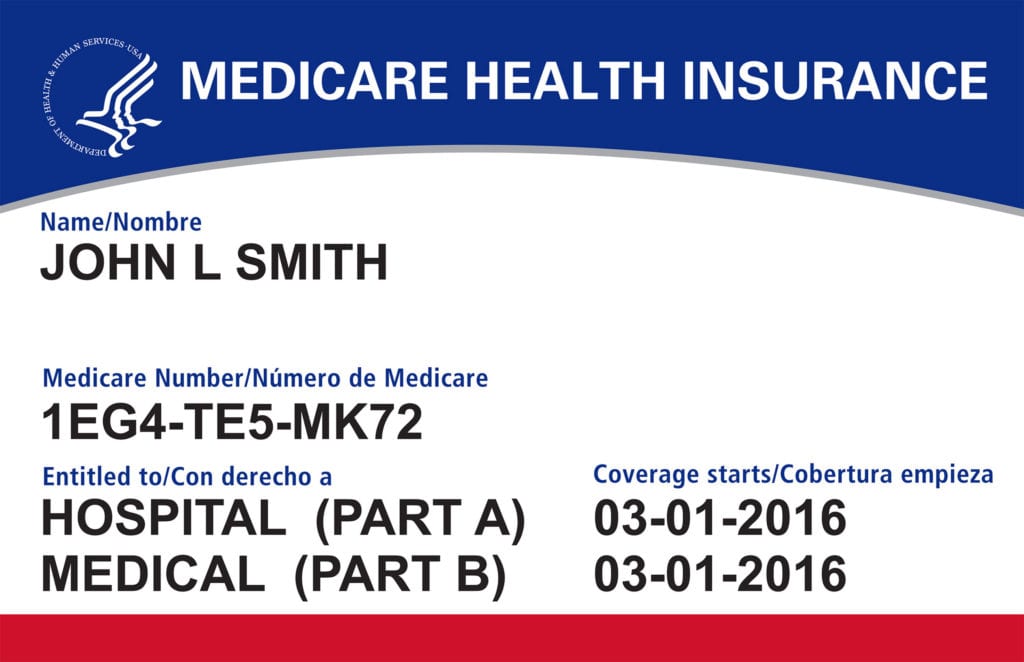
New Medicare cards are on the way for residents of Massachusetts. Actually, everyone with Medicare in the six New England states and New York are scheduled to receive their new card by the end of August, according to the Centers for Medicare & Medicaid Services (CMS).
The reason for issuing new cards is to combat fraud and identity theft. The Social Security numbers have been replaced with new unique identifying numbers called the Medicare Beneficiary Identifier.

The current Medicare cards are being replaced this month for residents in New England and New York. Photo:courtesy of the Centers for Medicare and Medicaid Services.
“Removing Social Security numbers from Medicare cards is one of the many ways CMS is committed to putting patients first and improving the consumer healthcare experience,” said Raymond Hurd, Regional Administrator for the Centers for Medicare & Medicaid Services. “This change not only protects Medicare patients from fraud, but also safeguards taxpayer dollars by making it harder for criminals to use Social Security numbers to falsely bill Medicare for care services and benefits that were never performed.”
Once the card arrives, it can be used immediately. The old card should be destroyed by shredding or cutting into small pieces. The Medicare’s users’ benefits remain the same.
The CMS cautions seniors to watch out for scams. Medicare will never call uninvited to ask personal or private information. You will be contacted by a customer service representative from Medicare only if you have previously called and left a message for a call back. If someone asks for your information or for money, or even threatens to cancel your health benefits if you refuse to share your personal information, hang up and call 1-800-MEDICARE (1-800-633-4227).
Your information should be shared only with doctors, pharmacists and other health care providers when receiving care, or with insurers.
Unfortunately, seniors are often targeted for scams because they are seen as an easy opportunity. Older people can be vulnerable because they are often socially isolated, lonely and tend to be more trusting. Dementia and memory loss also tend to make them easy prey.
Medicare, which was developed in 1965, is a federal health insurance program for people 65 and older; certain younger people with disabilities; and people with permanent kidney failure who require dialysis or transplant. It consists of four parts: Medicare A for hospital insurance; Medicare B for medical insurance; Medicare C for Medicare Advantage Plans, such as managed care plans; and Medicare D prescription drug coverage.






